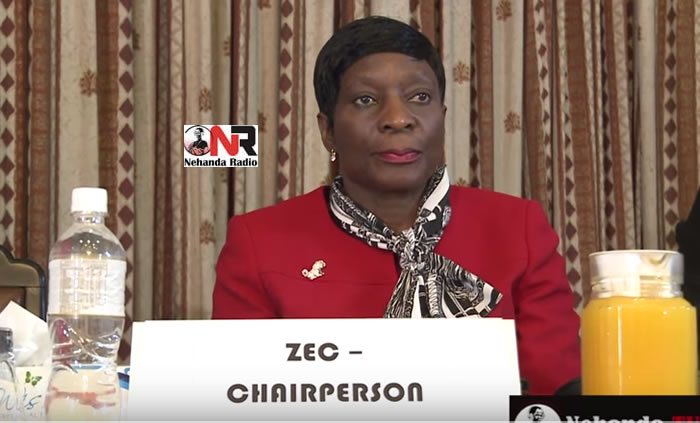By Gift Phiri
Amid concerns over the adequacy of security measures to guard against unauthorised access to the voter registration database, the Zimbabwe Electoral Commission (Zec) this week said it will not be drawn into divulging details on this contentious subject, arguing that the matter was of a security nature.

In an exclusive interview with The Daily News on Sunday, Zec chairperson Rita Makarau said the detailed security plan for the storage of biometric data was not an issue they can disclose to the public because such information was of a “security nature”.
“The specific details on storage and transportation of data are of a security nature, the details of which cannot be divulged in public forums,” said Makarau.
“Zec has made the transportation and storage systems as secure as possible with the assistance of experts from its co-operating partners,” she said without naming the “partners”.
This comes as Chinese firm, Laxton Group Limited, which won the $4 million tender to supply biometric voter registration (BVR) kits for registering voters ahead of the crucial 2018 general elections highlighted, in leaked documents, that there was lack of tangible protection mechanisms, leaving the BVR storage systems vulnerable to fraud.
The State Procurement Board settled for Laxton Group after it proposed a $3,9 million budget to supply the BVR kits.
A leaked risk report by Laxton Group Limited’s chief legal officer, Paul Bellin, raised grave concerns over the security of the voter registration data centre, and said any breach could dent its image.
“This is a highly alarming risk. Zec does not appear to have this infrastructure in place and when Laxton raised this issue, it fell on deaf ears.
“It was also made clear that Zec intends using an alternative company to provide the central system, which was even more alarming,” reads the leaked report to Laxton’s board of directors and security chiefs in Zimbabwe.
There are fears that Israeli company, Nikuv Projects International, could be called in to handle the voter database, and was likely to use the central registry database at the Registrar-General’s office, which will contain all person-identifying biometrics information in the country.
Nikuv’s involvement in the 2013 polls sparked an uproar in opposition circles, with Zanu PF’s rivals claiming the company was roped in to rig the election in favour of President Robert Mugabe’s party.
Morgan Tsvangirai’s MDC claimed back then that the Registrar-General’s office paid the controversial Israeli-based company over $10 million to assist Zanu PF rig the July 31, 2013 polls, an allegation strenuously denied by Nikuv, the ruling party and the Zec.
Laxton said there must be elaborate security measures in place to prevent or detect tampering that risks soiling its credibility.
“If issues arise, it is virtually impossible to know who is accountable. With multiple parties handling the system, then who is responsible if an issue arises? It will make it too easy to point fingers at each other,” the Laxton Group report said.
An authoritative Zec source said voter data “will first be transferred, in encrypted form, from the BVR kits to hubs via special USB sticks.”
“Data from each region will then be assembled and cross-checked at the level of the regional biometric centre before being exported to the national biometric centre for processing,” said the source.
Zec is compiling a new voter register ahead of presidential, parliamentary and municipal elections next year, a mammoth task key to ensuring the vote is more credible than past polls.
The electoral commission is looking to register seven million voters through electronic voter registration kits, including laptop computers, fingerprint scanners, cameras and printers. Daily News






